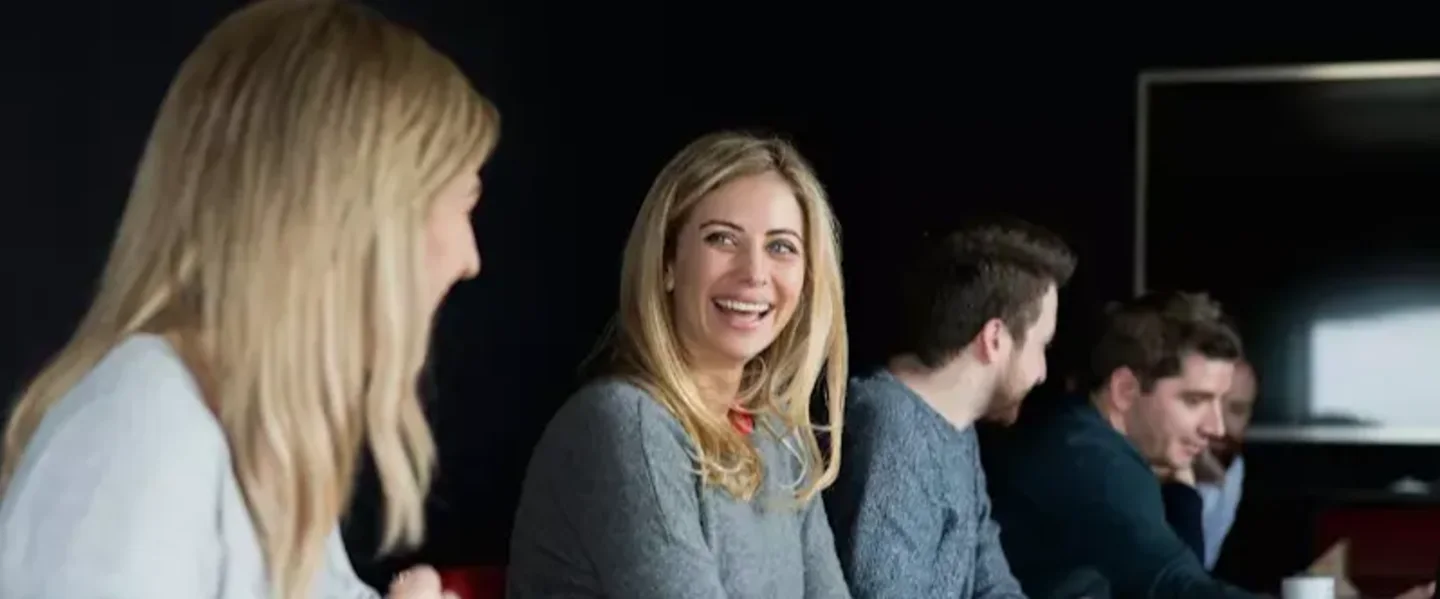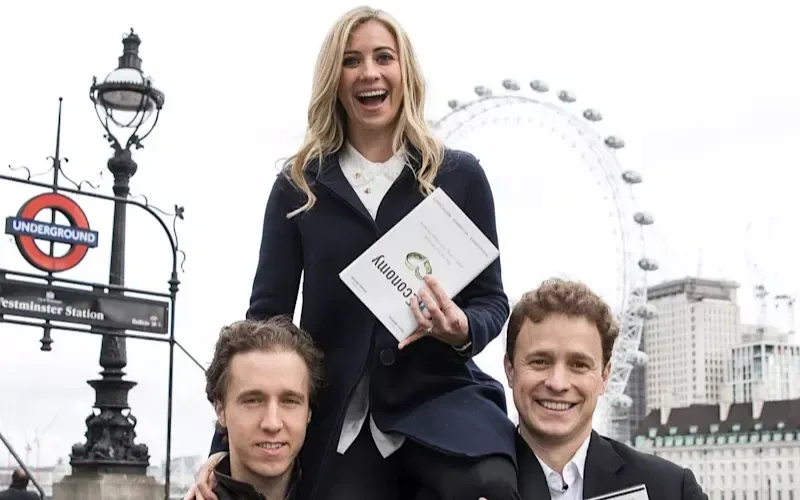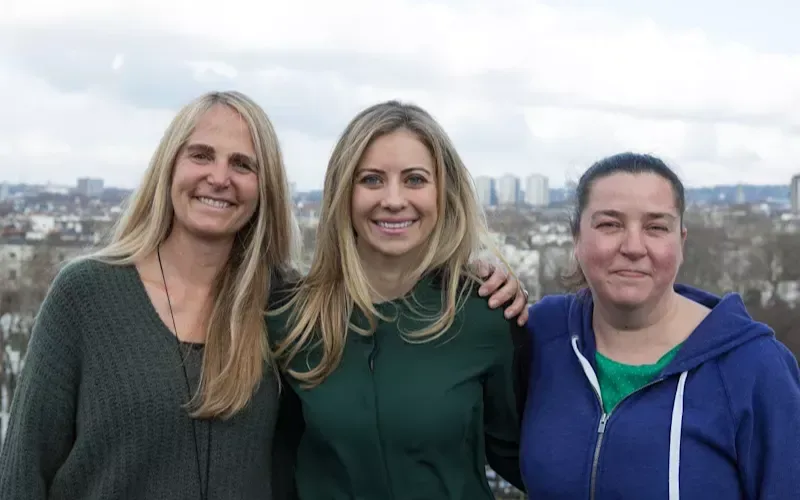WEconomy - out now!
“It was like an episode of the The Twilight Zone and The Stepford Wives rolled into one."
Today is the day – WEconomy is officially in bookstores and available to buy! It’s been really wonderful working with Marc and Craig and I’m so grateful to have gone through the writing process with them by my side.
That said, without all of my colleagues, my first book would never have been possible. In the last ten years I’ve learnt so much from working at Virgin.
Every day I see people unite purpose and profit in a way that allows our company, our people, and ultimately the economy and the wider world, to thrive. When it came to writing about the work we do and the wonderful people leading the charge in embedding purpose, the examples were endless. I’ve loved telling their stories in my chapters and I can’t wait for you to read them.
To celebrate the first official launch day of WEconomy, and the amazing people I get to work with every day, I want to share a short extract from my chapter, ‘People are your purpose'. I hope you enjoy it.
“It was like an episode of The Twilight Zone and The Stepford Wives rolled into one.
Suits and ties as far as the eye could see. Every desk occupied by 9am sharp but the presence of 130 people produced only deafening silence. No music, no shouting across desks over the sound of the cappuccino machine or the crunching of toast. Glum faces abounded as curt emails were sent to any staff member caught checking Facebook or not wearing the appropriate office attire. Lunch kept to a strict 30 minutes.
Teabags rationed to 1.4 per member of staff. At 5pm the office emptied and only the deafening silence remained. I cringe writing the above because I’m aware that for some of you this is a typical day at the office… welcome to your world, right?
For Virgin Management Limited (VML), our “Corporate Day” was a novel experiment to raise money for charity and give us all a new appreciation for how “uncorporate” we usually are at the office. It also resulted in a telling-off for my brother Sam, who forgot and turned up in jeans and trainers. The following morning, we returned to normal (well, our standard of normal) with flexible working, unlimited leave, an endless supply of tea and coffee, lunches, and snacks. We were back in full force, with a soundtrack of sporadic singalongs, usually led by my wonderful E.A. Louise, to whatever music was on shuffle.
After my first few weeks at Virgin I quickly learned to keep my mouth shut when my friends talked about their working conditions. They were expected to leave their personalities at the door and not to call on them again until they clocked out at the end of the day. Simply put, their employers didn’t trust them to be themselves and still do a great day’s work.
As a result, my friends didn’t trust that their employers valued them at all. So apart from putting in the bare minimum, what was the point? A lot has been written in the past few years about beanbags and ping-pong tables, bring your dog to work days, sleep pods, in-office massages and yoga being the only ways to keep millennials happy at work. That’s all very well in Silicon Valley, or for the hipsters in Shoreditch, London.
But for the majority of professions, these toys and perks just won’t fly. A colourful bean bag and free tea are great added benefits, if you are in a position to provide them. None of these things need to eat up your yearly budget or turn your place of business into an unruly party. But even the mighty teabag means nothing if your company is not built on a culture of mutual respect. Build a people-first culture. Your business will be better off for it.”
WEconomy is available to order right now – I hope you love it as much as I do. I’d also love to hear what you think – is there a particular chapter that resonates with you or a learning you’re going to action? Tweet me using #WEconomy!




